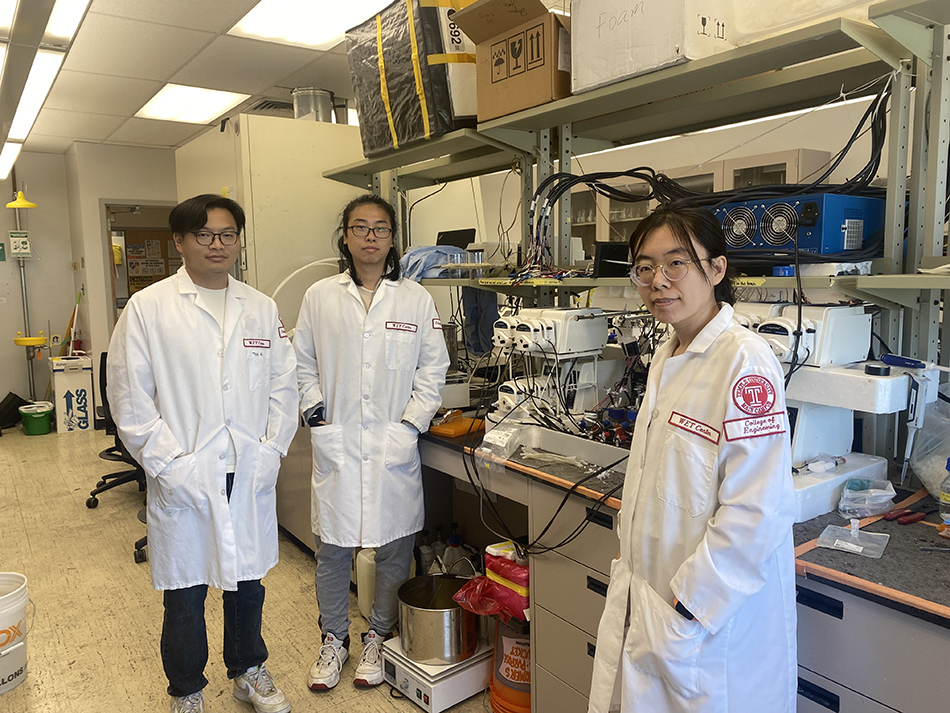Earlier this year Dr. Harry Yuan, an assistant professor in the Civil and Environmental Engineering department, received a $720,000 grant from the NSF (National Science Foundation) for his research on building microbial communities capable of robust electro-methanogenesis. Two of the main entities in this experiment are organic waste and biogas.
Organic waste can come from wastewater and food waste. “Right now, there are approximately 60 to 80 million tons of dry weight food waste every year. Only a small portion of this is converted into a valuable product like biogas,” explains Yuan. If a higher percentage of food waste could be converted into biogas, it could become a realistic renewable alternative to natural gas.
Biogas, a renewable alternative to natural gas, is produced by properly treated organic waste. Organic waste is converted into biogas by a community of microorganisms. These microbial communities consist of organic-consuming microorganisms and biogas-producing organisms working together to convert the organic waste into biogas. Currently, there is no mass production of biogas. Yuan’s research hopes to change this and turn biogas into a true renewable energy alternative, with the potential to power anything that is currently powered by fossil fuels. “According to the DOE (Department of Energy), full implementation of all potential biogas production sites in the U.S. is estimated to power more than 3.5 million homes,” states Yuan.
To improve the efficiency of biogas production by these microorganisms, Yuan and his laboratory have been experimenting with the use of electricity to feed the microorganisms.
Like the process of photosynthesis in plants, microorganisms absorb the electric current and then, in turn, emit biogas, converting carbon dioxide into methane. A similar form of biogas is also produced by cows and livestock, but it is difficult to capture. As a result, biogas produced by livestock contributes to greenhouse gas emissions unlike the biogas emitted by microorganisms.
Yuan additionally uses his research projects as an educational experience for high school and undergraduate students. For several summers, he has hosted high school students in his lab and had six undergraduate students contribute meaningfully to the project, including one undergraduate student listed as a co-author on a peer-reviewed publication.
Involving students in research early in their academic career is important to Yuan. “As long as they are interested, students are welcome to take a look at our research and decide to join us later,” he states.
As his team continues their research, Yuan’s hope for this project is to positively contribute to the fight against climate change, leveraging a viable renewable energy source that can be good for the environment and reduce energy costs.

